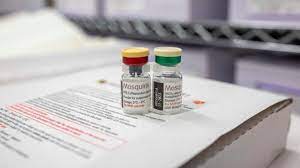The African Union has welcomed the UN health agency’s historic go-ahead for the malaria vaccine to protect African children, APA learnt on Wednesday.
On October 6, the World Health Organization (WHO) recommended the widespread roll out of the first malaria RTS,S vaccine also known as Mosquirix, to counter the deadly disease across Africa.
The UN health agency said it has recommended the “groundbreaking” vaccine based on the advice of two WHO global advisory bodies – one for immunization and the other for malaria.
“In the context of comprehensive malaria control the RTS,S/AS01 malaria vaccine can be used for the prevention of P. falciparum malaria in children living in regions with moderate to high transmission as defined by WHO,” it says.
The vaccine should be provided in a schedule of four doses in children from five months of age for the reduction of malaria disease and burden, the agency adds.
Malaria remains a primary cause of childhood illness and death in sub-Saharan Africa.
More than 260 000 African children under the age of five die from malaria annually.
“For centuries, malaria has stalked sub-Saharan Africa, causing immense personal suffering,” said Dr Matshidiso Moeti, WHO Regional Director for Africa.
The WHO said key findings of the pilots informed the recommendation based on the data and insights generated from two years of vaccination in child health clinics in the three pilot countries.
The AU, through the Africa Centers for Disease Control and Prevention (Africa CDC), has approved the vaccine whose findings show that it is feasible to deliver and has a strong safety profile.
To date, more than 2.3 million doses of the vaccine have been administered in three African countries – the vaccine has a favorable safety profile, according to the findings.
MG/as/APA


